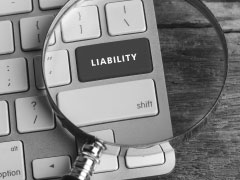Non-compete agreements have become a significant topic of discussion in the business world, especially in Florida. As companies look to protect their interests, employees often wonder about the legality and implications of these agreements. Are non-compete agreements legal in Florida? Parrish & Goodman, Attorneys at Law, PLLC, explores this topic.
Understanding Non-Compete Agreements
A non-compete agreement is a contract between an employer and an employee that restricts the employee from entering into competition with the employer after the employment period ends. This can typically involve prohibiting the employee from working for a competitor or starting a competing business within a specific geographic area and timeframe.
Non-compete agreements are legal in Florida but subject to specific regulations. For example, the state imposes certain conditions to ensure that non-competes are reasonable and protect legitimate business interests.
What About the FTC Final Rule Banning Non-Compete Clauses?
On April 23, 2024, the Federal Trade Commission (FTC) issued a final rule banning non-compete clauses; the law aims to protect workers’ freedom to change jobs, increase innovation, and generate new business. Under this final rule, existing non-competes for most workers will not be enforceable; non-competes for senior executives may still be enforced. Companies cannot issue new non-competes for any employee or senior executive.
On August 20, 2024, the Northern District of Texas rendered a significant ruling in Ryan LLC v. Federal Trade Commission, setting aside the FTC’s non-compete rule. The court determined that the FTC had overstepped its statutory authority in establishing this rule. Additionally, the court dismissed the FTC’s claim that any relief should be limited to the specifically named plaintiffs, clarifying that the Administrative Procedure Act does not allow for party-specific relief.
This ruling blocks the non-compete rule from taking effect across the country. Consequently, employers are permitted to continue using and enforcing non-compete agreements as permitted under state law.
However, in October 2024, the FTC, as expected, appealed the Northern District of Texas’s ruling. The appeals court has yet its decision on the appeal.
Key Considerations for Non-Compete Agreements in Florida
Non-compete agreements are legal in Florida, but they have specific requirements and limitations intended to protect both employers and employees:
- Legitimate Business Interest: Florida law requires that the non-compete agreement protect the employer’s legitimate business interests, such as trade secrets, business relationships, or customer goodwill.
- Reasonableness: Non-compete agreements must be reasonable in terms of duration, geographic area, and restricted activity scope. Courts generally consider these factors to determine whether the agreement is enforceable:
- Duration: The period of restriction must not be excessively long. Depending on the circumstances, six months to two years is typically viewed as reasonable.
- Geographic Scope: The geographical area covered by the agreement should be appropriate and not overly broad. It should reflect the area where the employee worked or had influence.
- Scope of Activities: The restricted activities should be clearly defined and related to the type of work the employee performed.
- Blue Pencil Doctrine: A Florida court may modify an overly broad non-compete agreement to make it enforceable instead of voiding it entirely. This is known as the “blue pencil” doctrine, allowing modifications to ensure the agreement aligns with the law.
- Employment Type Matters: The enforceability of a non-compete agreement can differ depending on the type of employment. For example, employers may have a stronger case for non-compete agreements with high-level executives than entry-level employees.
Our Florida Business Lawyers Can Help
It is essential for all parties involved to understand their rights and responsibilities under these agreements. Whether you are an employer looking to safeguard your business or an employee navigating your career options, Parrish & Goodman can help ensure compliance with Florida law and protect your interests. If you have questions about a non-compete agreement or need legal assistance, contact Parrish & Goodman, Attorneys at Law, PLLC, at 813-643-4529 to request a free consultation.




